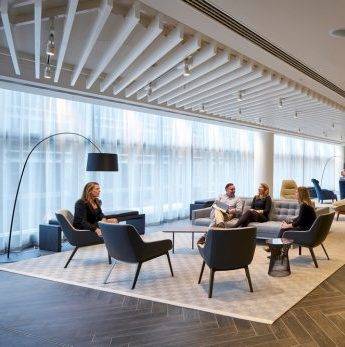June 13, 2018
UK skills shift as organisations digitise and automate operations
 Almost half (49 percent) of companies are struggling to find skilled workers as digitisation and automation cause significant change in the skills businesses look for in professionals, according to new data from Robert Half UK. As a result, one fifth (21 percent) are now looking to recruit candidates with exceptional soft skills, with a view to developing the desired technical skills on the job. In the Robert Half research, UK business leaders consider an openness to new ideas (28 percent), an openness to change (26 percent) and good communication abilities (19 percent) as key attributes and will prioritise these areas when considering new talent. Digitisation and automation are rapidly evolving the business world. Companies are having to quickly adapt to the changing world of work, and are looking for employees who can keep pace,” says Matt Weston, UK Managing Director at Robert Half.
Almost half (49 percent) of companies are struggling to find skilled workers as digitisation and automation cause significant change in the skills businesses look for in professionals, according to new data from Robert Half UK. As a result, one fifth (21 percent) are now looking to recruit candidates with exceptional soft skills, with a view to developing the desired technical skills on the job. In the Robert Half research, UK business leaders consider an openness to new ideas (28 percent), an openness to change (26 percent) and good communication abilities (19 percent) as key attributes and will prioritise these areas when considering new talent. Digitisation and automation are rapidly evolving the business world. Companies are having to quickly adapt to the changing world of work, and are looking for employees who can keep pace,” says Matt Weston, UK Managing Director at Robert Half.













 A major research study “
A major research study “




 As employment levels rise, employers are facing stronger competition to attract and retain staff. Now the latest research suggests there is an escalation in the ‘war for talent’, as nine out of 10 new hires admit they would leave a job that fails to meet expectations within a month. According to research commissioned by Robert Half of 9,000 candidates in 11 countries across four continents, nearly half (47 percent) admit they decide whether they would or wouldn’t accept a position straight after the initial meeting. Highlighting that first impressions count, a further one fifth (20 percent) know if they are interested after the first communication (call/email), while 17 percent typically decide within the first five minutes of the interview. Less than one in 10 (9 percent) wait until they have completed subsequent interviews to decide and merely 7 percent decide during contractual negotiations. Even once candidates have accepted a role, 91 percent admit they would consider leaving a job within their first month and 93 percent during their probation period.
As employment levels rise, employers are facing stronger competition to attract and retain staff. Now the latest research suggests there is an escalation in the ‘war for talent’, as nine out of 10 new hires admit they would leave a job that fails to meet expectations within a month. According to research commissioned by Robert Half of 9,000 candidates in 11 countries across four continents, nearly half (47 percent) admit they decide whether they would or wouldn’t accept a position straight after the initial meeting. Highlighting that first impressions count, a further one fifth (20 percent) know if they are interested after the first communication (call/email), while 17 percent typically decide within the first five minutes of the interview. Less than one in 10 (9 percent) wait until they have completed subsequent interviews to decide and merely 7 percent decide during contractual negotiations. Even once candidates have accepted a role, 91 percent admit they would consider leaving a job within their first month and 93 percent during their probation period.
















June 12, 2018
Keeping people at the heart of the modern workplace
by Ryan Anderson • Comment, Technology, Workplace design
(more…)